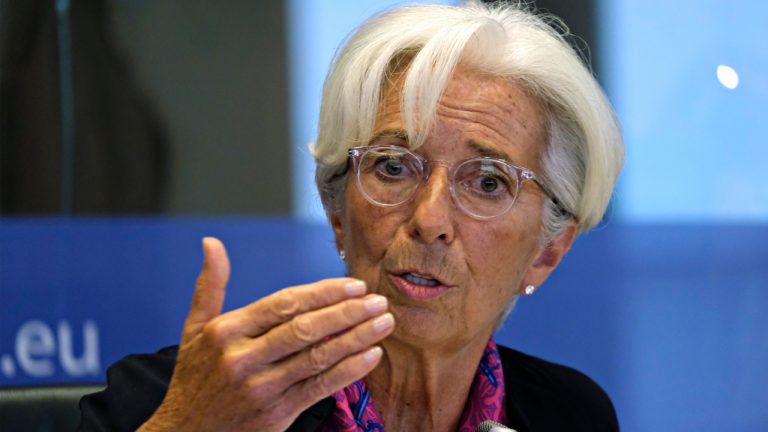ECB Chief Christine Lagarde Downplays Bitcoin’s Risks to Financial Stability, Troubled by Stablecoins

ECB President Christine Lagarde downplays any risks bitcoin and other cryptocurrencies could pose to financial stability and monetary sovereignty. In contrast, she sees stablecoins, such as Facebook-backed libra, as posing “serious risks.”
Christine Lagarde, Bitcoin, and Facebook’s Libra
The president of the European Central Bank (ECB), Christine Lagarde, shared her view on the future of money in an article published Monday in L’ena hors les murs magazine. She specifically discussed “bitcoin or other crypto-assets that have been trying to gain a foothold in the digital payments space and to anchor trust in their technology.”
Lagarde began by stating that innovations like blockchain technology “bring both new opportunities and new risks.” She noted that peer-to-peer (P2P) transactions have “no need for a trusted third-party intermediary,” asserting that the trust “is replaced by cryptographic proofs and the security and integrity of records is ensured by DLT, which avoids the ‘double-spending’ problem.” The ECB chief elaborated:
The main risk lies in relying purely on technology and the flawed concept of there being no identifiable issuer or claim. This also means that users cannot rely on crypto-assets maintaining a stable value: they are highly volatile, illiquid and speculative, and so do not fulfil all the functions of money.
Lagarde proceeded to point out that unlike bitcoin, stablecoins “pose serious risks,” even though they “could drive additional innovation in payments and be well integrated into social media, trade and other platforms.” She explained that stablecoins “try to solve crypto-assets’ problem of a lack of stability and trust by pegging their assets to stable and trusted fiat money issued by States.”
In addition, the issuers of “global” stablecoins, “aim to introduce their own payment schemes and clearing and settlement arrangements.” Global stablecoins are stablecoins that are likely to achieve mass adoption from inception, such as Facebook-backed libra.
The ECB chief warned that if these global stablecoins are widely adopted, “they could threaten financial stability and monetary sovereignty.” For instance, she explained: “if the issuer cannot guarantee a fixed value or if they are perceived as being incapable of absorbing losses, a run could occur. Additionally, using stablecoins as a store of value could trigger a large shift of bank deposits to stablecoins, which may have an impact on banks’ operations and the transmission of monetary policy.”
Moreover, Lagarde believes that stablecoins backed by global tech firms “could also present risks to competitiveness and technological autonomy in Europe, as they would attempt to leverage their competitive advantage and control of large platforms,” adding:
Their dominant positions may harm competition and consumer choice, and raise concerns over data privacy and the misuse of personal information.
Former Goldman Sachs hedge fund manager Raoul Pal commented on Lagarde’s view, tweeting: “the fear is real and it’s stablecoins they see as the threat, not bitcoin.”
What do you think about Lagarde’s view on bitcoin and stablecoins? Let us know in the comments section below.
The post ECB Chief Christine Lagarde Downplays Bitcoin’s Risks to Financial Stability, Troubled by Stablecoins appeared first on Bitcoin News.
source https://news.bitcoin.com/ecb-christine-lagarde-downplays-bitcoin-risks-financial-stability/
Komentar
Posting Komentar